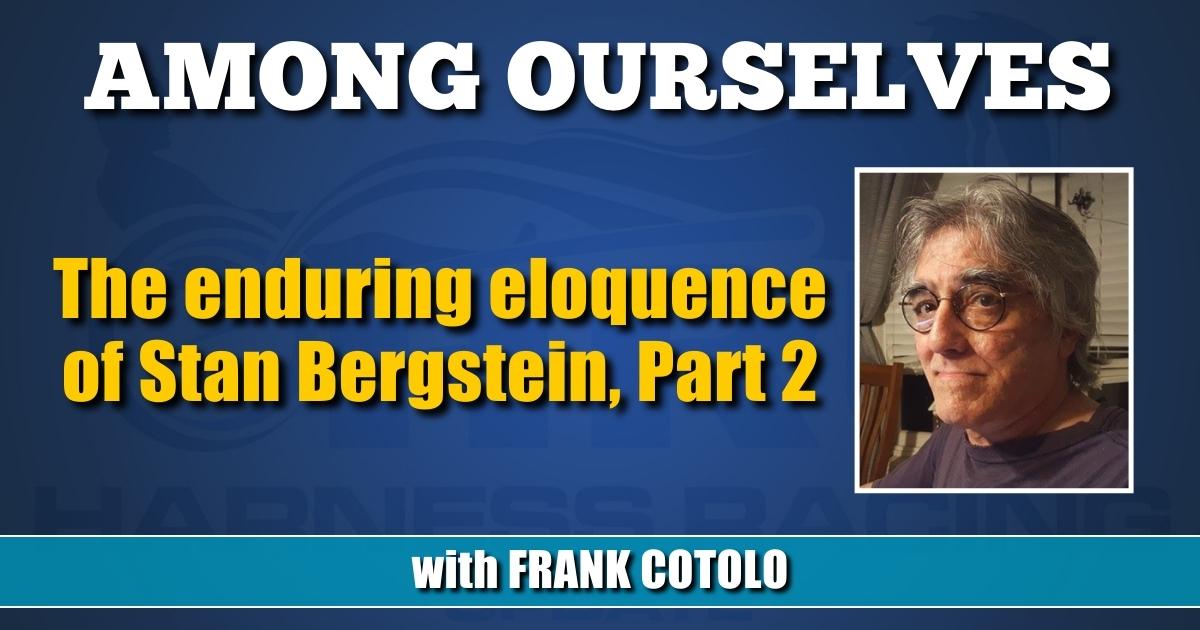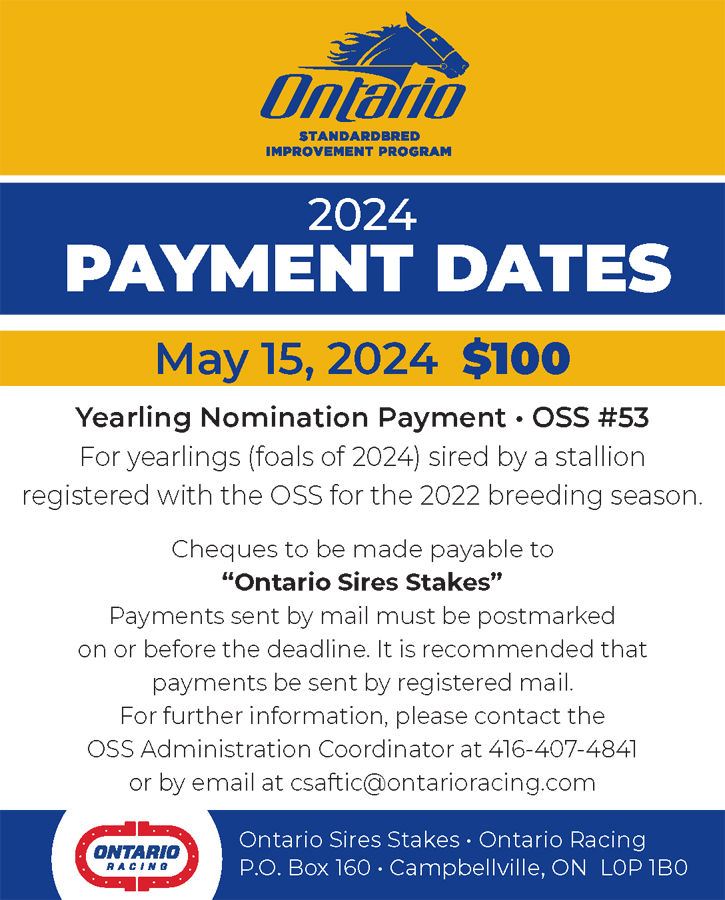

The enduring eloquence of Stan Bergstein, Part 2
by Frank Cotolo
Part 1 is here.
There is a moment in the movie Ordinary People when Calvin Jarrett says to his son, “Don’t admire people too much. They’ll disappoint you sometimes.” I knew immediately that is what Stan Bergstein meant when he said, “Never love a horse.” It was the single most important piece of advice I received during my early seasons learning about harness racing and it proved itself an unvaried truth long before I predicted Western Hanover would lose the 1992 Little Brown Jug.
I spent more time with Mr. Bergstein that day in Ohio and the overwhelming love for Western Hanover made me happy I went public with a Bergstein audience listening. I did not even love the two pacers I mentioned for an upset and when Direct Flight did not make the final, I was left to defend my forecast with Fake Left.
“Really?” said a tall man standing next to me in the infield.
“Absolutely,” I said and apologized for not knowing him.
“I’m Governor Jim Edgar,” he said, “of Illinois.”
“Yes, sir, nice to meet you. I’m aware of your support for the standardbred industry.” I introduced myself as an editor for TIMES: in harness.
“You like Fake Left that much?” he said.
“Governor, I don’t like Fake Left at all but I know I don’t like Western Hanover. I’m so sure he’s going to disappoint the majority of bettors that I tried to bet my life on it with a fellow journalist.”
“That Fake Left will win?”
“No, that Western Hanover will lose.”
“That’s a significant bet, all right.”
“He brushed me off but I’ll be satisfied enough to know he lost money and no love was lost between me and Western Hanover.”
Later, I sat squashed in the confined backseat of David Dolezal’s Porsche so I could ride back to our hotel with Mr. Bergstein in the passenger seat where he commended me for my lack of loving a horse.
Back in Pennsylvania, I became Stan Bergstein’s editor for his column ran in TIMES:. I was aware of his unswerving confidence in the texts he delivered and how he revolted if any changes were made, especially without his consent. I also knew not to admire him too much because “he could disappoint me sometimes” in our editorial relationship. We became comfortable with our writer-editor relationship and one day he called me his “favorite editor.” That was all the more meaningful than admiration could satisfy.
Then there was this time in Florida…
I was in a tavern with the U.S. Harness Writers Association (USHWA) group. I was in town to attend the USHWA-members dinner at Pompano Park. The first night in Miami we were all in a tavern. I made points as a new member of the standardbred writers group by correctly answering Jerry Connor’s potent trivia question, “What is the first line in the movie Citizen Kane?”
Though not on my schedule, I decided to attend the “of-the-year” awards, but there was a problem; the dinner/ceremony had a formal-dress policy and I did not pack for such an occasion. Mr. Bergstein would not approve of my appearance if I did not meet the clothing requirements. However, he said I could fake it with any kind of black pants, a white shirt and tie and a dark jacket.
“You’ll be the only one in disguise,” Mr. Bergstein said.
He handed me over to his trusty Harness Tracks of America executives Ray Gomez and Chris McErlean and with their help we used a pair of my tight black jeans and a borrowed casual white shirt and tie and sports jacket as my formal disguise. When Mr. Bergstein came to our table, he gave me one of those crooked smiles.
“Don’t stand on my account,” he said.
I could hardly stand at all because my poor costume would give me away from any angle. Mr. Bergstein understood. After all, he made it possible when all he had to do was deny my appearance all together. (I like to think he got a laugh out of it, too).
I returned to Pennsylvania with a number of industry stories as a part of a new community of professionals and worked with Mr. Bergstein on his column titled “Loose Lines” until the publication’s collapse in the early 2000s.
Oddly enough, it was not until Mr. Bergstein’s passing in 2011 that I researched his professional history. I was not amazed at his lucrative contributions to the horse racing industry over decades; for me they were obvious. What was most important to me was the value of his education long before and since I became a member of the standardbred community.
My respect overruled my admiration and after all, it was two decades later that I did not fall in love with Bulldog Hanover and was able to publicly support and cash a ticket on Desperate Man in the 2021 North America Cup final.















